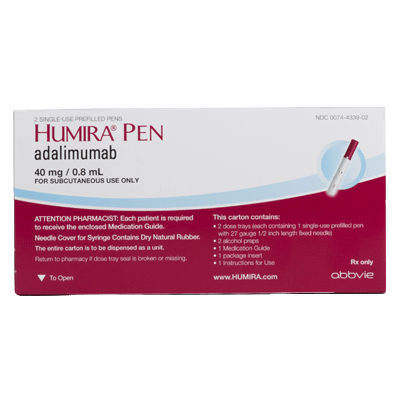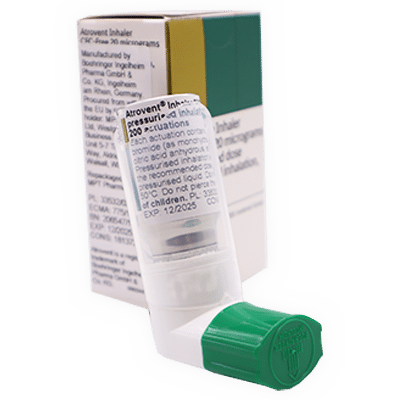Ive been taking Humira for about a year now, and the results are truly impressive. My rheumatoid arthritis symptoms have significantly improved, I feel much better, and I can lead a more active lifestyle.

Humira
- Quality products
- Support 24/7
- Fast delivery
What is it?
Humira is a biologic drug that actively targets the bodys immune system to treat inflammatory diseases. It is often used to treat conditions such as psoriasis, which causes red, scaly patches on the skin, and psoriatic arthritis, which combines skin conditions with joint inflammation. Humira is also effective in treating rheumatoid arthritis, which is characterized by joint inflammation and causes pain and swelling. The drug has a positive effect on the body, helping to relieve symptoms and improve the quality of life of patients suffering from these chronic conditions.
Humira is routinely used to treat a variety of inflammatory diseases in adults. These include rheumatoid arthritis, psoriatic arthritis, ankylosing spondylitis, also known as ankylosing spondylitis, and plaque psoriasis. It is also prescribed for hidradenitis suppurativa, a chronic skin condition. In adults and children, the drug can be used to treat Crohns disease, juvenile idiopathic arthritis, ulcerative colitis and uveitis, eye inflammation.
Composition
Humira contains the active ingredient adalimumab, a monoclonal antibody. This antibody specifically blocks tumor necrosis factor-alpha (TNF-alpha), a substance that plays a key role in inflammation. The importance of adalimumab is underscored by its ability to effectively regulate the immune systems response to inflammation, which is particularly important in autoimmune diseases.
The drug contains a set of excipients that ensure the stability and bioavailability of the main component. Humira contains the following ingredients:
- Adaliumab — the main active ingredient
- Mannitol — used as an osmotic agent
- Sodium phosphate — a pH stabilizer
- Sodium citrate — regulates the acidity of the solution
- Water for injection — the main solvent
This combination of components ensures the drugs efficacy and safety, making it suitable for use in clinical practice.
How to use?
Proper use of Humira is a critical component of successful therapy. The drug is administered subcutaneously, requiring skill and caution. The administration process begins with patient education from a healthcare professional, who explains all the necessary steps for self-administration. Patients are then advised to follow the package instructions to ensure proper preparation and administration of the injection.
Humira dosing varies depending on the condition and individual patient characteristics. In most cases, the drug is administered at regular intervals—weekly or biweekly.
- Check the packaging and expiration date of the medication.
- Prepare the syringe and clean the injection site with an alcohol swab.
- Insert the needle into the subcutaneous fat, holding the syringe at a 45-degree angle.
- Inject the medication slowly and withdraw the needle.
- After the injection, apply pressure to the injection site to stop any bleeding.
Strictly follow your doctors instructions and the manufacturers instructions to reduce the risk of side effects and maximize treatment effectiveness.
How does it work?
Humira works by blocking the activity of tumor necrosis factor-alpha, which plays a central role in inflammatory processes in the body. Excessive TNF-alpha activity, typically observed in autoimmune diseases, activates the bodys inflammatory response, leading to tissue and organ damage. By blocking this factor, Humira helps reduce inflammation, which in turn alleviates symptoms and prevents further tissue damage.
Interestingly, Humira affects not only symptoms but also the disease mechanisms themselves, making it effective in the treatment of chronic conditions. This is achieved through adalimumabs ability to manage an overloaded immune response, returning it to normal. Patients using Humira often report significant improvements in symptom severity, reduced swelling and joint pain, and improved overall health and quality of life.
The duration of the drugs effect can vary depending on the individual patients characteristics and the stage of the disease, highlighting the importance of a personalized approach to treatment.
Indications
Humira has a wide range of indications due to its specific action on the immune system. The primary conditions for which Humira is prescribed are directly related to chronic inflammation and autoimmune processes. This drugs range of applications is truly impressive, covering a number of serious conditions that significantly impair quality of life.
Physicians often consider Humira as a therapy for the following conditions:
- Rheumatoid arthritis is a disease that affects the joints, causing inflammation and pain.
- Psoriatic arthritis is an autoimmune disease that combines skin and joint manifestations.
- Ankylosing spondylitis is a chronic inflammatory disease of the spine and large joints.
- Psoriasis is a chronic autoimmune disease characterized by the appearance of red, scaly patches on the skin.
- Enthesitis and related conditions, such as uveitis, or inflammation of the iris.
Humira therapy allows patients not only to relieve symptoms but also to slow the progression of these diseases.
Contraindications
Contraindications to Humira include a number of medical conditions and drug interactions that may impact the safety of the drug. Before starting treatment, it is crucial to ensure that the patient has no contraindications. This ensures that Humira is safe and effective, minimizing the risk of adverse reactions.
Contraindications include:
- Hypersensitivity to adalimumab or other ingredients of the drug.
- Presence of active infections that may worsen due to decreased immune defense.
- Vaccination with live viral vaccines during treatment.
- High risk of exposure to people with infectious diseases.
Patients and physicians should be vigilant and plan treatment carefully to avoid potential complications.
Side effects
Although Humira is generally well-tolerated, some side effects are possible and should be anticipated. Medical professionals always warn patients about the possibility of such reactions so they can seek prompt treatment and avoid complications. If any adverse symptoms occur, it is important to consult a doctor for an assessment and treatment adjustments if necessary.
The most common side effects of Humira include injection site reactions, such as redness, itching, swelling, or mild pain. Internal reactions may include discomfort or headaches. While most of these symptoms resolve on their own, more serious reactions should be reported to a doctor.
List of possible side effects:
- Respiratory tract infections, which may manifest as sinusitis or colds.
- Headaches that accompany initial use of the drug or during the bodys adaptation period.
- Skin rash, which usually resolves once the condition stabilizes.
- Swelling or pain at the injection site that persists or worsens over time.
In any case, if you experience new or worsening symptoms, consult your doctor for advice and professional support.
Frequently asked questions
Humira Reviews and Experiences
After starting to use Humira, my skin has cleared up significantly. Ive suffered from psoriasis for a long time, and this is the first time the treatment has produced such good results. Im very pleased and confident in using this medication in the future.
I use Humira to treat Crohns disease, and my flare-ups have become less frequent and less severe. I love that I can now enjoy life without constant pain and limitations.









